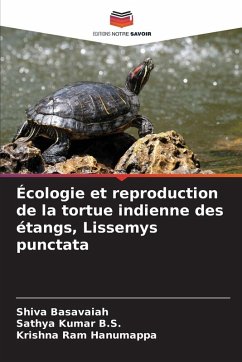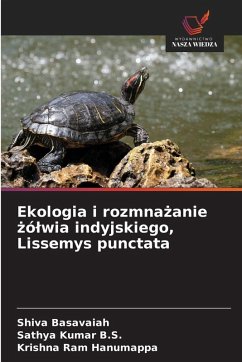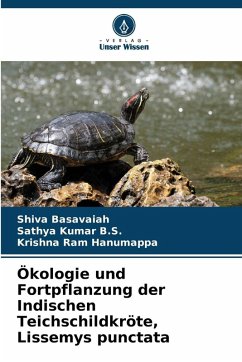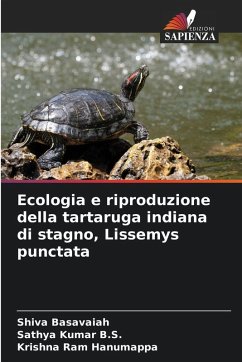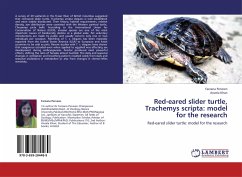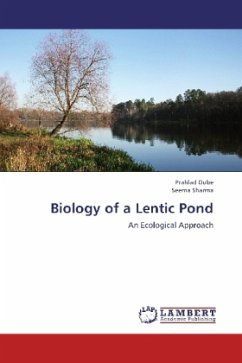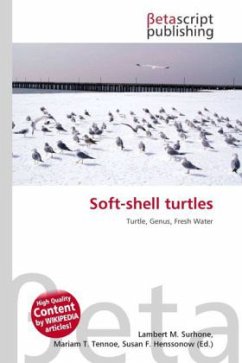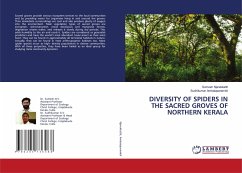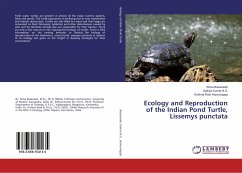
Ecology and Reproduction of the Indian Pond Turtle, Lissemys punctata
Versandkostenfrei!
Versandfertig in 6-10 Tagen
47,99 €
inkl. MwSt.

PAYBACK Punkte
24 °P sammeln!
Fresh water turtles are present in almost all the major riverine systems, lakes and ponds. The turtle population is declining due to over exploitation and habitat destruction. Turtles are also killed for meat and their eggs are consumed as food. Moreover, pollution and other disturbances caused by man and his domestic animals also are responsible for their decline. There are only a few reports on the reproductive biology of turtles. There is little information on the nesting behavior or habitat. The biology of reproduction of the freshwater / pond turtle, Lissemys punctata in relation to its e...
Fresh water turtles are present in almost all the major riverine systems, lakes and ponds. The turtle population is declining due to over exploitation and habitat destruction. Turtles are also killed for meat and their eggs are consumed as food. Moreover, pollution and other disturbances caused by man and his domestic animals also are responsible for their decline. There are only a few reports on the reproductive biology of turtles. There is little information on the nesting behavior or habitat. The biology of reproduction of the freshwater / pond turtle, Lissemys punctata in relation to its ecology has given us the insight in devising strategies for their conservation.



